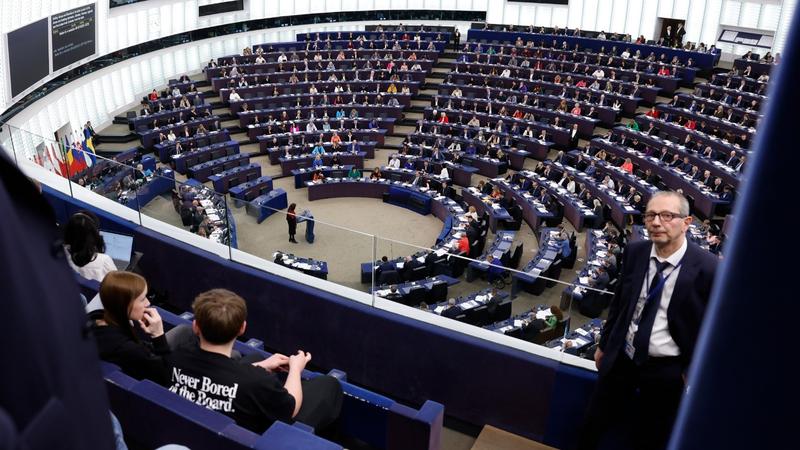Published 21:11 IST, April 23rd 2024
EU Approves New Rules to Ban Products Made With Forced Labour; China-Produced Goods on Radar
The European Parliament approved rules on Tuesday to ban in the EU the sale, import and export of goods made using forced labour.

Brussels: In an effort to eliminate the bloc’s “links to modern slavery and human rights abuses”, the European Parliament on Tuesday approved new rules to ban in the EU the sale, import and export of goods made using forced labour, Euronews reported.
The sweeping new law – applicable to products manufactured anywhere in the world – was approved with 555 votes in favour, six voting against it and 45 abstentions, the report said, adding that it is being viewed as a “deliberate move” against countries with reported “evidence of state-sponsored forced labour”.
Why Are the New Rules Approved by European Parliament Important?
- Under the new rules – expected to come into force in 2027 – member state authorities and the European Commission would be able to launch formal investigations into suspicious goods, supply chains, and manufacturers with suspected links to forced labour.
- If a product is deemed to have been made using forced labour, it will no longer be possible to sell it on the EU market (including online) and shipments will be intercepted at the EU’s borders.
- Manufacturers of banned goods will have to withdraw their products from the EU single market and donate, recycle or destroy them.
- Non-compliant companies could be fined, and the goods may be allowed back on the EU single market once the company eliminates forced labour from its supply chains.
The move, a Reuters report said, was driven by EU lawmakers concerned about human rights in Xinjiang, a region where China is believed to be committing atrocities against Uyghur Muslims.
"Today, worldwide, 28 million people are trapped in the hands of human traffickers and states who force them to work for little or no pay. Europe cannot export its values while importing products made with forced labour. The fact that the EU finally has a law to ban these products is one of the biggest achievements of this mandate," Maria-Manuel Leitao-Marques, a Portuguese Member of the Alliance of Socialists and Democrats in the Parliament, had said.
The Chinese government has denied any abuses in Xinjiang, which is a major producer of cotton and a key supplier of materials for solar panels.
As the EU Approves New Rules, What's Next?
- The text of the new regulations has to now get a final formal approval from the EU Council to come into effect.
- It will then be published in the Official Journal.
- The EU countries will then have to start applying the law within three years.
The Background
According to Euronews, the EU bill – first tabled by the Commission in September 2022 – has faced several hurdles and delays. A speedy deal, however, was finalised between the parliament and EU capitals in early March, allowing for the new rules to get a green signal during this week’s final sitting before European elections begin in June.
Updated 00:07 IST, April 24th 2024




